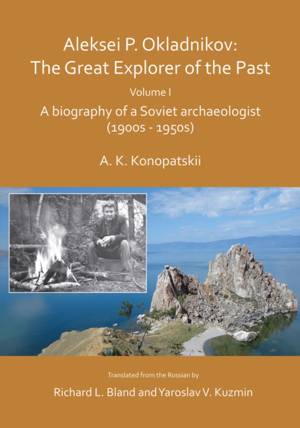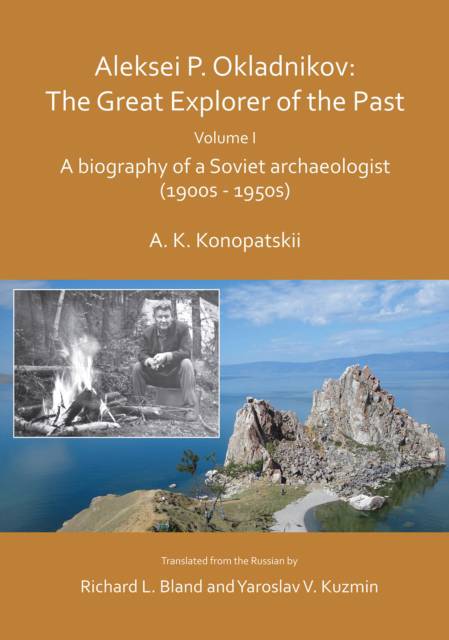
- Afhalen na 1 uur in een winkel met voorraad
- Gratis thuislevering in België vanaf € 30
- Ruim aanbod met 7 miljoen producten
- Afhalen na 1 uur in een winkel met voorraad
- Gratis thuislevering in België vanaf € 30
- Ruim aanbod met 7 miljoen producten
Zoeken
Aleksei P. Okladnikov: The Great Explorer of the Past. Volume I
A Biography of a Soviet Archaeologist (1900s - 1950s)
Aleksander K Konopatskii
€ 33,95
+ 67 punten
Omschrijving
Aleksei P. Okladnikov: The Great Explorer of the Past is about the life and works of Aleksei P. Okladnikov (1908- 1981), a prominent archaeologist who spent more than 50 years studying prehistoric sites in various parts of the Soviet Union - mainly in Siberia and Central Asia as well as in Mongolia. Okladnikov made numerous fascinating discoveries in the 1930s, including the first Neanderthal remains in the USSR at Teshik Tash (Uzbekistan) and unique figurines at the Upper Palaeolithic site of Buret' in the Angara River basin (Eastern Siberia). His research and achievements are presented on the background of ideological campaigns inspired by the Communist Party in the 1920s-1950s, a subject that is very rarely described in non-Russian sources. Particular attention is given to the debunking of the 'Japhetic theory' and the 'new doctrine of language' developed by Nikolai Y. Marr, an Oriental scholar and specialist in languages who in the 1920s-early 1930s was a formal leader of Soviet archaeology. Marr's principles of linguistic studies were mechanically transmitted to several fields of the humanities, including archaeology, and were mandatory for every Soviet scholar. In 1950 an abrupt end to Marr's theories was enacted by Josef Stalin. Details of these events - important for development of archaeology, ancient history, and linguistics in the USSR - were never previously described. The book is for archaeologists, historians, and everyone who is interested in the history of scholarship (particularly the humanities) in the twentieth century.
Specificaties
Betrokkenen
- Auteur(s):
- Vertaler(s):
- Uitgeverij:
Inhoud
- Aantal bladzijden:
- 438
- Taal:
- Engels
- Reeks:
Eigenschappen
- Productcode (EAN):
- 9781789692044
- Verschijningsdatum:
- 11/07/2019
- Uitvoering:
- Paperback
- Formaat:
- Trade paperback (VS)
- Afmetingen:
- 150 mm x 208 mm
- Gewicht:
- 725 g

Alleen bij Standaard Boekhandel
+ 67 punten op je klantenkaart van Standaard Boekhandel
Beoordelingen
We publiceren alleen reviews die voldoen aan de voorwaarden voor reviews. Bekijk onze voorwaarden voor reviews.








